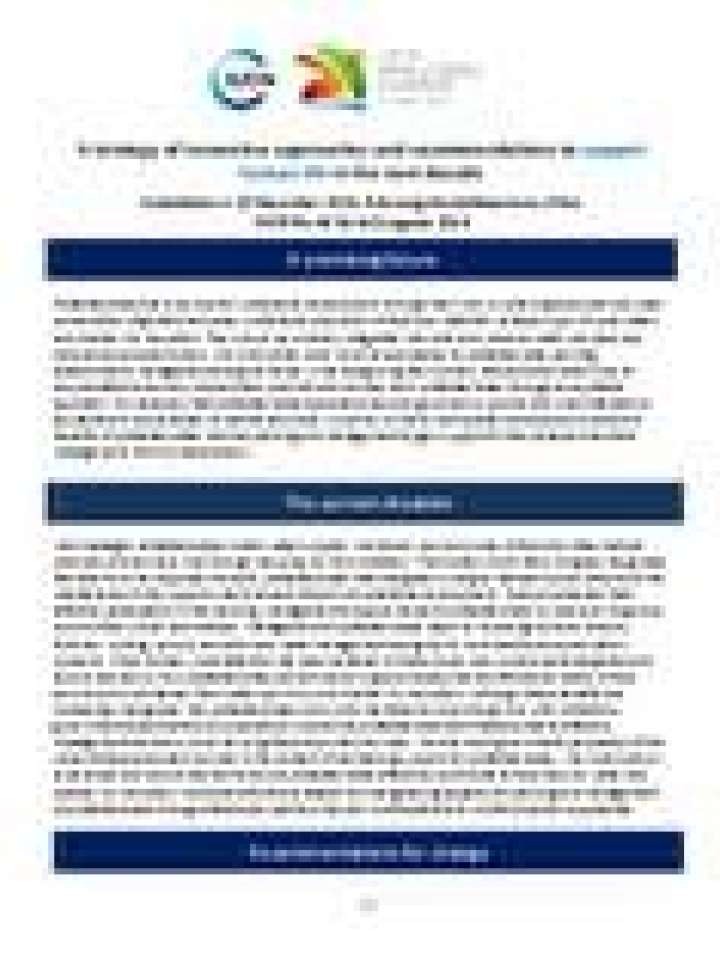A strategy of innovative approaches and recommendations to support human life in the next decade
This paper addressed how synergies between strong governance, community participation, watershed conservation and protected areas (PAs) provide solutions for disaster risk reduction and building resilience. It highlights the importance of protecting natural systems in order to maintain societal functions as part of the Stream Four 'Supporting Human Life' of the World Parks Congress (WPC). Outcomes relating to disaster risk reduction focuses on priority actions to advance natural solutions, including through science, management and communication.
The paper introduces the sub-themes of disaster risk reduction, water and food security, and presents recommendations on: the function of wetlands as purification and waste filtering systems; the role of PAs in reducing food security risks and eradicating hunger; and ways in which nature-based solutions serve to mitigate natural disasters and shocks. The role of small-scale farmers, community-based conservation, and technology and engineering advances is highlighted as critical to the future of PAs. It further emphasizes the need to mainstream biodiversity into the water security debate and avoid expansion of agricultural areas at the cost of natural ecosystems.
It is an outcome of the sixth International Union for Conservation of Nature (IUCN) World Congress on Protected Areas, or World Parks Congress (WPC), convened in Sydney, Australia, from 12-19 November 2014, which was intended to take stock of the state of protected areas (PAs) worldwide, appraise progress and setbacks, and define the agenda for PAs for the next decade.
Explore further
